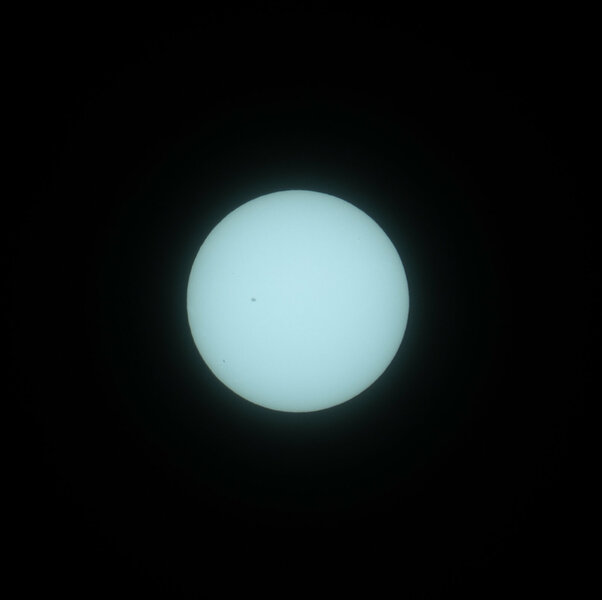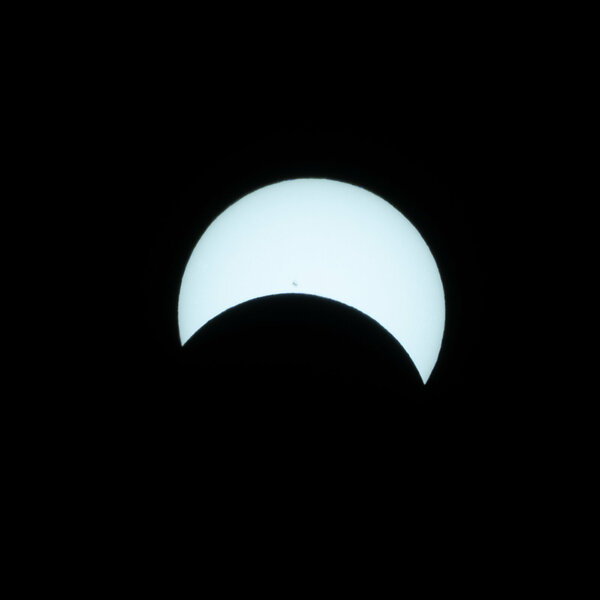CharlesH
LMF-Patron Gold
There is a solar eclipse in North America tomorrow. it will be a full eclipse from parts of Mexico up through Eastern Canada. But here in California it will just be a bite. Nevertheless I'm trying to figure out how to get a shot of that. Does anyone have experience with solar eclipse shots?
I took some practice shots of the full sun today to see what's possible. This is hand held with the 70-300mm lens at 300mm, and a stack of three 0.9 ND filters, at 1/8000 second and f/22. I can just get the sun so it isn't over exposed. There are some sun spots but that's about it. This is cropped to 1239 x 1234 pixels. If I get anything worthwhile of the eclipse I'll post it tomorrow.

I took some practice shots of the full sun today to see what's possible. This is hand held with the 70-300mm lens at 300mm, and a stack of three 0.9 ND filters, at 1/8000 second and f/22. I can just get the sun so it isn't over exposed. There are some sun spots but that's about it. This is cropped to 1239 x 1234 pixels. If I get anything worthwhile of the eclipse I'll post it tomorrow.









